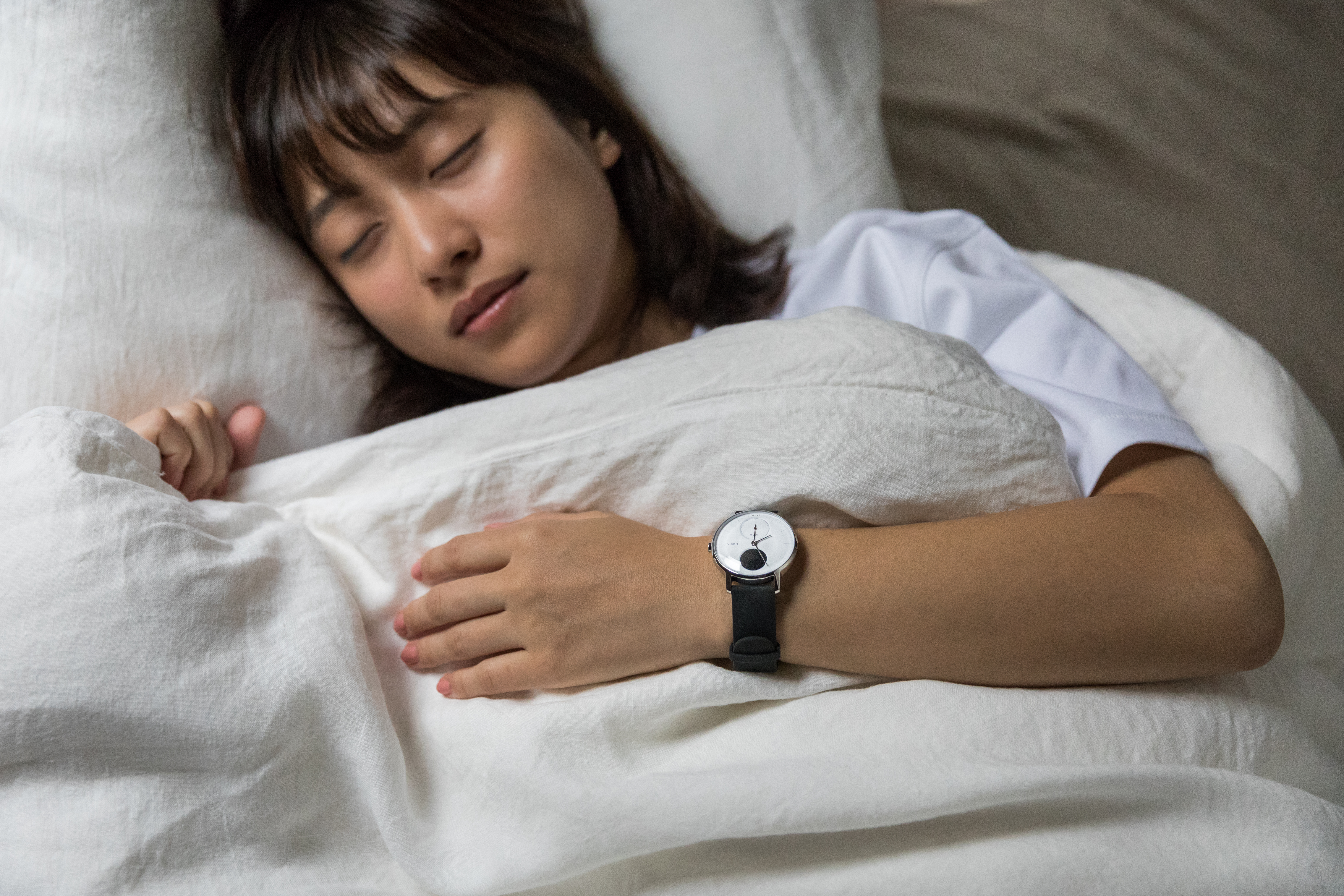
When people think of healthy lifestyle choices, exercise and nutrition pop to mind first. But there’s another, quieter area of life, that research increasingly shows is crucial to overall health. How much – and how well – you sleep.
Not getting enough shut eye or getting a poor night’s sleep can have profoundly negative effects on your well-being. In the short term, lack of sleep can be hazardous, such as when sleepy people get behind the wheel of a car or use heavy machinery. In the long term, poor sleep is linked to increased risk of chronic diseases, such as hypertension and obesity, as well as mood disorders, such as depression.
In honor of Sleep Awareness Week, organized by the National Sleep Foundation, we spoke with Dr. Pierre Herve Luppi, vice president of the European Sleep Research Society and a sleep researcher at the University of Lyon in France, to open our eyes to the value of catching some Z’s. Read on to learn how much sleep you need, why sleep improvement matters, and steps you can take for a healthy night’s rest.
Why is sleep a problem for some people?
“Sleep is still seen as something that you can get rid of a bit and it’s not that important. ‘I will survive,’ ” says Dr. Luppi. “This is not right, but it is difficult to demonstrate that it’s important to have a good sleep and people shouldn’t get rid of one or two hours per day.”
Since the invention of electricity, work, play and reading has extended into the wee hours of the night. Today, portable electronics come to bed with us and their blue-spectrum lights make our brains think it’s morning or midday at midnight. Our 24/7 world, job stresses, long commutes all add to increasing rates of sleep disorders.
People who are sick with other illnesses, such as sleep apnea, restless leg syndrome and cancer, also often have trouble getting a good night’s sleep.
How much sleep do you need?
A 2013 Gallup poll found that 40% of American adults were clocking in under seven hours of sleep per night.
According to the National Sleep Foundation, that’s not enough. The group recommends adults get between 7 and 9 hours of sleep each night. For school age children, the recommendation is between 9 and 11 hours of sleep. Teens function best after 8 to 10 hours of sleep. The elderly need about 7 to 8 hours of shuteye.
And in 2015, Gallup also published a poll titled “Getting More Sleep Linked to Higher Well-Being” which showed… well, you can probably guess what it showed.
Why do we need to sleep?
“We used to think the impact of sleep was only in the brain,” says Dr. Luppi. “In the field we used to say, ‘By the brain, for the brain.’ Now we know it’s impacting the entire body. There’s an impact at all levels.” Luppi said research has even found differences at the level of individual blood cells in people who are sleep deprived.
While one night of sleep deprivation can cause temporary decreases in mental and physical alertness, the loss of one to two hours of sleep for consecutive days, weeks, and months can be seriously damaging. Check out the following sobering facts:
- Sleep-deprived people are more likely to be obese. Part of the problem is that they have more waking hours to reach for food. But research has also shown that the body’s appetite-control mechanisms don’t work as well when people get under seven hours of sleep per night.
- Researchers are increasingly finding a link between heart disease, increased blood pressure and inflammation in people who are sleep deprived.
- People who are severely sleep deprived (<5 hours/night) are at increased risk of developing type 2 diabetes.
- Depression, anxiety and other mood disorders are linked to chronic sleep debt.
- Sleep deprivation can lead to a drop in libido.
- The ability for adults and children to learn new things is increasingly linked to adequate sleep.
And though it hasn’t been fully proven, Luppi said research also strongly indicates that a good night’s sleep improves a person’s decision-making process, as well as their ability to be creative and have new insights.
Tips for Getting a Good Night’s Sleep
Thankfully, becoming aware of your sleep patterns and switching up a few routines can lead to a better night’s sleep for most people.
Exercise most days
“Sports are good for sleep,” Luppi told us. “The more physical activity you get, the easier you go to sleep and the deeper sleep you get.” It’s best to make the exercise vigorous, but even light workouts will help. And try to avoid exercise right before bedtime.
Stick to a sleep schedule and create a relaxing bedtime routine
Going to sleep and waking up at the same time everyday regulates your body’s circadian rhythm. And, sorry to say, but sleeping in on the weekends is a no-no. Also establish a pleasurable, relaxing sleep routine you follow most nights so your body knows it’s time to wind down. Read a good book, though not on an electronic device. Take a bath. Practice mindfulness meditation. Write in a journal. Take the dog for a slow stroll around the neighborhood. Spend time with family or friends, ideally not watching TV.
Make your bedroom a sleep sanctuary
The room should be inviting to you and encouraging of sleep. Consider room-darkening curtains. Make sure lights from electronics or night lights are not within your sightline. If your partner snores, ask them to be evaluated for sleep apnea as their sleep is likely compromised too.
Avoid Caffeine, Alcohol and Naps
Especially late in the day. If you must nap, keep it to no more than 20 minutes.
Finally, try not to stress about any of the above
Be sure not to fret about adopting all these recommendations at once. Sleep disruptors and facilitators vary from person to person. The key is finding which activities and habits have the most positive and negative impact on your sleep. By focusing on those, you’ll quickly see an improvement in the quality and length of your sleep.
Luppi said the growing use of sleep trackers is a good way to wake people up to sleep problems they may have been unaware of. Luppi told us, “If you have sleep apnea and you record your sleep and say, ‘Oh my God, what’s that?’ This can save your life.”
Whenwe asked Dr. Luppi what is most important when it comes to sleep, he said that the issue extends beyond individuals—to the state of the planet itself. For the generation of new ideas and to resolve global problems, people need to rest up, pay attention to their bodies and honor nature’s circadian rhythms.
“You need to listen to you. We need to listen to ourselves. And many people they don’t listen to themselves… This is a problem. People need to think, ‘I need this eight hours of rest.’ And they need to stop thinking it would be nice to get rid of sleep because it has no meaning and they need all that time to do things. I would say, ‘Okay, cool down, cool down. Take the time for your life and for your sleep.’ This is the message I would like to transmit: Nature is important. Nature invented sleep. Respect it.”



